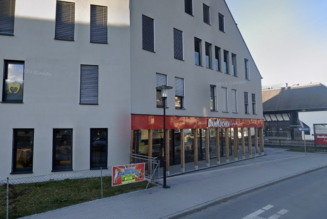Unlike many other cancers, prostate cancer is very indolent and many are asymptomatic. It is the commonest cancer among elderly males with lifetime risk of 1 in 8 males and risk increases with increasing age. Here’s how your lifestyle can lead to prostate cancer

In India, the cancer risk is increasing due to lifestyle changes and increasing obesity apart from increasing old age population and prostate cancer is one of the top ten leading cancers in India where approximate incidence is 11-19/100000 cases per year. The prostate is a male reproductive organ found near the urinary bladder which secrets fluid responsible for nourishing and protecting the sperm and uncontrolled growth of cells in the prostate gland results in prostate cancer which could be genetic due to old age or race/ethnicity.
It is the commonest cancer among elderly males with lifetime risk of 1 in 8 males and risk increases with increasing age and average age of diagnosis for prostate cancer is 69-70 years. Prostate cancer is a deep located organ in the body and is inaccessible to easy biopsy and diagnosis hence, one needs to check prostate through rectum which is most discomforting at times.
Unlike many other cancers, prostate cancer is very indolent and many are asymptomatic. In an interview with HT Lifestyle, Dr S Raja Sundaram, Director – Institute of Oncology, Cancer Care – Oncologist at Gleneagles Global Health City, shared, “Prostate cancer can be diagnosed incidentally or on regular screening. The commonest symptoms of prostate cancer are urinary tract symptoms (urgency, frequency and hesitancy of urination) and back pain if there is spread to the bones.”
Talking about how does lifestyle affect prostate health, he said, “There are no proven lifestyle/dietary risk factors for prostate cancer though increased calcium and dairy products may have an implication on increased risk. Studies have shown that there is no risk associated with obesity and smoking.”
However, Dr T Manohar, Chief Urology, Uro Oncology and Transplant Surgeon, Director at Apollo Institute of Urology, pointed out, “Most of the cancers are related to lifestyle changes, dietary habits and exposure to environmental toxins (including tobacco, industrial toxins etc.). Excess meat eating and obesity are the major factors pre-disposing to prostate cancer apart from familial and hereditary factors.”
According to him, the treatment of prostate cancer are as follows:
- Observation or active surveillance those who are un fit or the if the cancer is in very early stage
- Surgery (Robotic assisted: RARP); Involves removal of the prostate and the lymph nodes surrounding. technology used is ROBOT and is globally standardized treatment for local and locally advanced prostate cancers
- Radiation therapy for prostate cancer involves high energy x rays to kill the cancer cells targeted and they are either external (EBRT) or internal (brachytherapy).
- Cryotherapy: where in cancer cells are feezed and killed to treat some cases of localized disease
- Hormone therapy for advanced or for raising PSA after surgery
- Chemotherapy for some high bulk advanced cases
- Immunotherapy involves vaccines for prostate cancer
- Targeted therapy: These are type of cancer treatment where in only cancer cells are targeted with less damage to normal cells
- Treatment of cancer involvement of bones includes medicines, radiopharmaceuticals and others
Revealing how many treatments are diagnosed in India so far and what are they, Dr S Raja Sundaram said, “Treatment options for prostate cancer include surgery – Robotic / Laparoscopic surgery, radiation therapy for the treatment of tumor in the prostate and its spread to bones, hormonal agents to decrease the body’s androgen levels (androgen – trophic factor for prostate cancer), immunotherapy and chemotherapy.”









